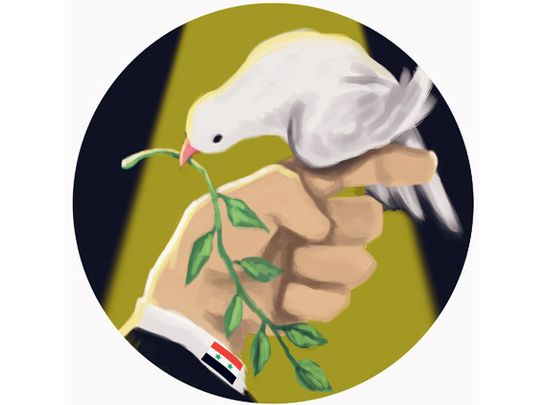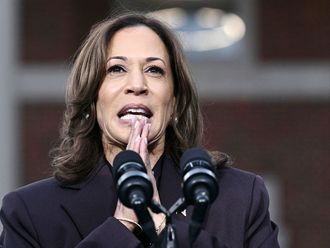
The resumption of Syrian-Israeli peace talks, through Turkish mediation, was perhaps the single most important development in the Middle East in the spring of 2008. The two sides held four rounds of indirect negotiations before the whole process was brought to a halt following the Israeli assault on Gaza in December of that year.
Having tested Israel's intentions for years, Damascus was sceptical from the very beginning, believing that Tel Aviv's interest in peace was lacking and that the true objective of the Israeli government was to use the peace process as a tool to bring about a new strategic balance in the region.
As a consequence, Syria was determined not to allow Israel to realise its objectives. First, Israel was not to be allowed to squeeze Mahmoud Abbas, President of the Palestinian National Authority, by playing Syria off against the Palestinians, an old Israeli trick. Second, peace talks must not affect Syria's regional relations or disturb the regional balance of power, which was established following the July 2006 war in Lebanon. Third, Turkey must be respected as an indispensable peace mediator and Syria would oppose any attempt to sideline Ankara's role in the peace process.
To show its commitment towards its regional allies and rejection of Israel's demands, Syria's foreign minister chose Tehran to explain his country's position on the peace process. Standing next to Iranian Foreign Minister Manouchehr Mottaki, Walid Al Moallem said that, "If Israel is serious and wants peace, it knows what is required to resume the peace talks". A few days later, Damascus sent its defence minister to Tehran in a highly publicised visit to bolster military cooperation between the two countries; another sign that Syria would not sacrifice its ties with Tehran in exchange for promises to return the Golan Heights at some point in the future.
Meanwhile, although the peace process ground to a halt, Syria continued to develop its economic and political ties with Turkey. Following the Turkish prime minister's angry reaction to Israel's aggression on Gaza in December 2008, Syria elevated its cooperation with Ankara to a new level by establishing a strategic cooperation council. Damascus' concerns over Turkey's military ties with Israel have all but vanished and Turkey was transformed from a foe into an ally.
Blossoming partnership
Syrian-Turkish cooperation was not limited to the Middle East peace process but has also covered Iraq, where the two countries have much at stake. For the past few years, Damascus and Ankara have been quietly working to facilitate a rapid and smooth pull out of the US forces from Iraq, preserving its territorial integrity and preventing partition along ethnic or sectarian lines. This agenda brought Damascus and Ankara closer together.
Developing ties with the key non-Arab neighbours — within the context of its conflict with Israel and the lack of progress in the peace process — did not stop Syria from trying to heal the rift with the Arab world. Hence, relations with Jordan and Lebanon dramatically improved, and the two countries plan to sign a free-trade agreement with Syria and Turkey. Relations with Saudi Arabia have also improved and the two countries work closely together.
Over the past couple of years, Syria's regional role has transformed. Its approach to dealing with a range of Middle Eastern problems has made it a key player in regional politics. As the only country in the region that borders the three main areas of conflict in the Middle East — Iraq, Palestine and Lebanon — Syria's cooperation has become key to regional security and stability. Within a few years, Syria has moved from the sidelines to occupy centre stage in regional politics. It will have a say in deciding numerous regional problems in the future.
The US and its junior ally — Israel — will certainly be quite unhappy to see their strategy of restructuring the regional balance by isolating Syria unravelling. But what the US and Israel might think is completely irrelevant. The key point is that Syria has come in from the cold and is making a strong comeback in the region.
Dr Marwan Al Kabalan is director at the Damascus Centre for Economic and Political Studies.










